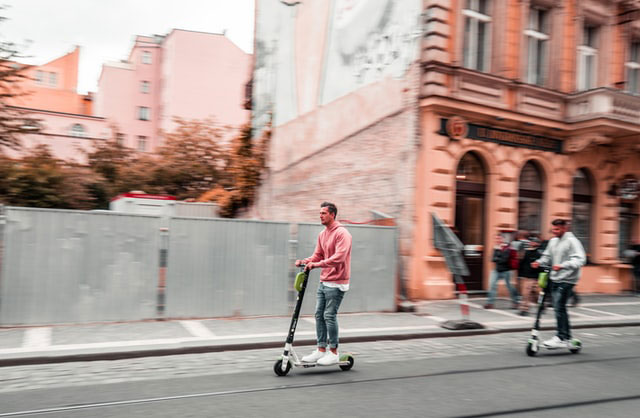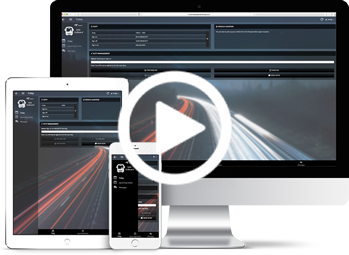E-scooters: A Secret Weapon in the Sustainable Mobility Revolution?
This post first appeared on LinkedIn by Paul Attenborough.
The recent arrival of electric scooters (e-scooters) on the streets of London marks a fascinating new development in the transformation of mobility within UK cities.
But as exciting as e-scooter pilots undoubtedly are, perhaps their greatest impact will be their role as part of a wider transition towards sustainable mobility – one that sees scooters, bikes and walking serving as integrated elements complementing and underpinning bus travel.
The key to such a model is the close integration of these modes (for the sake of convenience let’s call them ‘active travel’, even if the degree of activity varies) with the local bus Intelligent Transport System (ITS).
Bus and active travel can be seen as complementary partners, as both are sustainable and reduce congestion.
Logistically they align well, as active travel can address the traditionally troublesome first and last mile obstacle to public transport. But perhaps equally important, as a road-based ‘surface’ mode, bus enables passengers to hop off and easily take advantage of nearby available bikes and scooters.
In practice, this integration should be relatively simple to achieve. Harnessing available data via APIs, buses could be ‘aware’ of nearby active travel options and use this in on-board announcements to signal onward travel options. For example, a bus approaching a stop could announce, “Approaching Marble Arch. For onward travel three Santander Cycles and four e-scooters are available nearby.”
In this way, we see buses and active travel forming a symbiotic relationship, driving utilisation of each other, while reducing private car use for journeys both short and long.
But might this vision of sustainable mobility go yet further?
One of the more interesting aspects here is whether use of active travel and buses could be ‘gamified’ to promote a sense of public ownership over local air quality.
It seems clear that the promotion of sustainable forms of transport requires the public to understand the nature of air quality and emissions issues and be empowered to make decisions that address them. Central to this is the availability of information that shows the impact of individuals’ behaviour – which is where the concept of gamification comes in.
Apps like London’s TfL Go enable authorities to have a direct relationship with the travelling public. By integrating user accounts with payment cards and journey planners, authorities could develop comprehensive mobility digital footprints for people travelling around the city.
But the crucial element is the tracking of sustainable mobility choices within the context of the local air quality and wider emissions crisis. Imagine a scenario where citizens planning journeys might be presented with a range of options and the carbon footprint for each. The message from the city is simple: ‘We need to turn X million sustainable journeys this year to turn our city green. Will you help?’
Looking further ahead, we could potentially then track each person’s contribution towards a collective air quality target, presenting progress back within the app, e.g.: ‘You have removed X litres of carbon this year through sustainable mobility choices. Together we are 36% of the way to achieving our goal for this year. Thanks for being one of our green mobility heroes!”
In reality the technology here is fairly simple to implement. Between buses, emerging active travel modes, journey planners and mobility apps we collectively already have the tools required. What we need now is the commitment to join them together.
This is a fascinating time for mobility, with e-scooters presenting yet another development in the active travel landscape. The task now is to align such modes with buses as part of a sustainable mobility movement. In this way we could protect our buses, reduce congestion, and improve local air quality for our communities.

Here to help
Contact us and speak with one of our specialists:
+44 (0) 808 281 1039
More Info
About Us | Careers | Contact Us | Legal | Privacy
(c) 1999 – 2021 Trapeze Software ULC. All rights reserved
Trapeze Group respects your privacy

